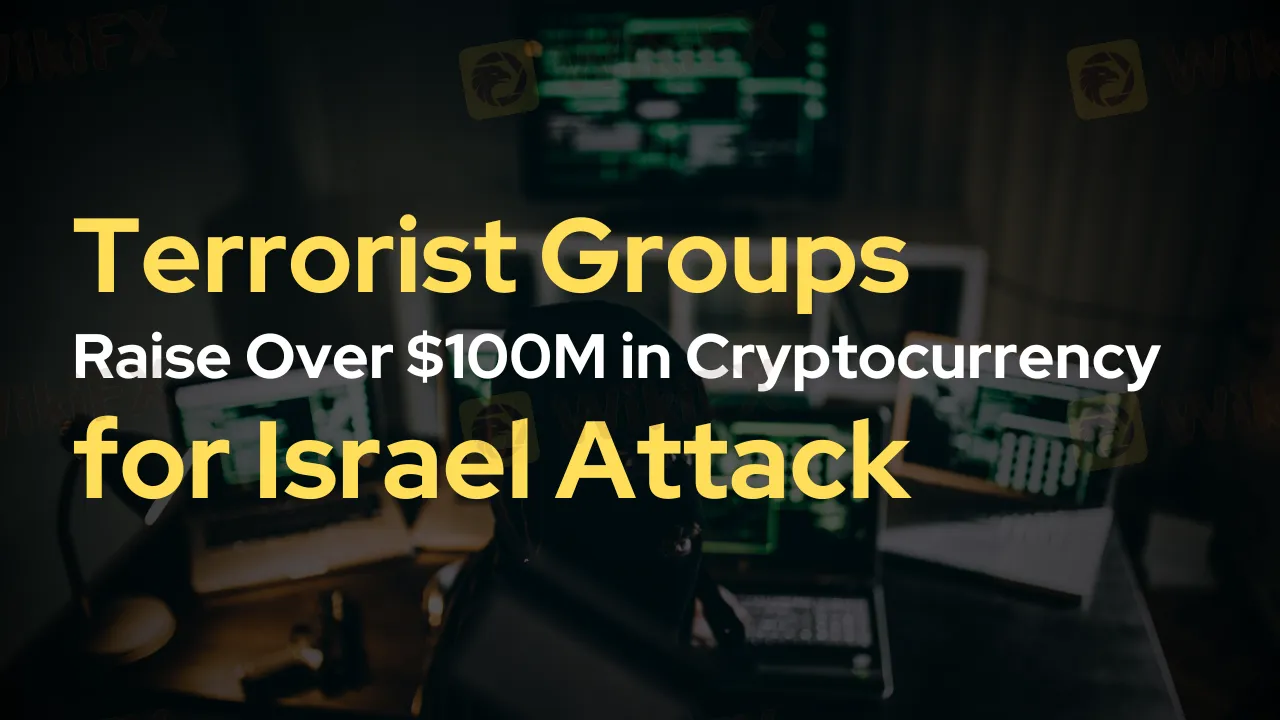简体中文
繁體中文
English
Pусский
日本語
ภาษาไทย
Tiếng Việt
Bahasa Indonesia
Español
हिन्दी
Filippiiniläinen
Français
Deutsch
Português
Türkçe
한국어
العربية
Terrorist Groups Raise Over $100M in Cryptocurrency for Israel Attack
Abstract:Wall Street Journal, it has been found that three pro-Palestine terrorist groups have successfully raised over $134 million through cryptocurrency to fund their operations.

In a recent revelation by the Wall Street Journal, it has been found that three pro-Palestine terrorist groups have successfully raised over $134 million through cryptocurrency to fund their operations. This startling discovery came after an in-depth review of Israeli court documents and thorough blockchain analyses.
Among the implicated organizations is Hamas, which has lately been in the limelight following its unexpected attacks on Israel over the past weekend. Although it is currently ambiguous whether the cryptocurrency funds received by Hamas were directly used for these attacks, it is confirmed that at least $41 million in cryptocurrency had been utilized for their operations at some juncture.
Adding to the list, the documents also unveiled that the Palestinian Islamic Jihad has received a staggering $93 million in cryptocurrency. Moreover, the Lebanese ally Hezbollah hasn't remained untouched by this trend. They have also been involved in the receipt of cryptocurrency, specifically in the form of Bitcoin, and have been actively trading on the Binance crypto exchange.

Surprisingly, these groups have been quite open about their fundraising efforts. They have consistently appealed for donations through the social media platform, Telegraph. Acknowledging the generosity of their supporters, they have also expressed gratitude for the massive cryptocurrency contributions.
But what makes this modus operandi even more alarming is the evolving tactics to remain undetected. As international banks started grasping the extent of these transactions, these groups ingeniously adopted payment processing methods that convert monetary contributions into crypto addresses. This strategy effectively camouflages the crypto wallets, allowing these organizations to effortlessly bypass the international banking system.
Addressing the issue, spokespersons from the Binance crypto exchange communicated to the Wall Street Journal about their proactive collaboration with both the US and Israeli governments. Their main objective is to mitigate and eventually eliminate any illicit activities associated with their crypto exchanges.
This revelation underscores the increasing complexity of tracking funds in the digital age, especially when it concerns international security. The harnessing of cryptocurrencies by extremist groups has ushered in a new challenge for governments and financial institutions, urging them to adapt and devise stronger measures against such covert operations.

Disclaimer:
The views in this article only represent the author's personal views, and do not constitute investment advice on this platform. This platform does not guarantee the accuracy, completeness and timeliness of the information in the article, and will not be liable for any loss caused by the use of or reliance on the information in the article.
Read more

Anti-Scam Groups Urge Tougher Action on Fraudsters in UK
Anti-scam groups demand tougher police action on fraudsters as UK fraud rates surge 19%, targeting millions in a penalty-free crime spree exposed by a $35m scam leak.

Philippines Deports 29 Indonesians Linked to Online Scam Syndicate in Manila
Online scam groups in the Philippines trick Filipinos into gambling and love scams, from Manila to Bacolod, causing trafficking and pain as police fight back.

How Reliable Are AI Forex Trading Signals From Regulated Brokers?
Discover how reliable AI Forex trading signals are and why using a regulated broker boosts their effectiveness. Learn key factors to evaluate accuracy and enhance your trading.

Top Currency Pairs to Watch for Profit This Week - March 31, 2025
Discover the top 5 currency pairs to trade for profit this week, March 31, 2025—USD/JPY, EUR/USD, GBP/USD, AUD/USD, USD/CHF—with simple strategies and best times.
WikiFX Broker
Latest News
How Crypto Trading Transforms FX and CFD Brokerage Industry
UK would not hesitate to retaliate against US tariffs - No 10 sources
FCA Warns Against 10 Unlicensed or Clone Firms
CySEC Warns Against 14 Unlicensed Investment Websites
Top Currency Pairs to Watch for Profit This Week - March 31, 2025
Will natural disasters have an impact on the forex market?
Philippines Deports 29 Indonesians Linked to Online Scam Syndicate in Manila
Navigating the Intersection of Forex Markets, AI Technology, and Fintech
Exposed: Deceptive World of Fake Trading Gurus – Don’t Get Fooled!
AI-Powered Strategies to Improve Profits in Forex Trading
Currency Calculator







